I'm Fussy About SPF, But These Mineral Sunscreens Are Perfect for Sensitive Skin
I've tried them all, and they are exceptionally great for sensitive skin.

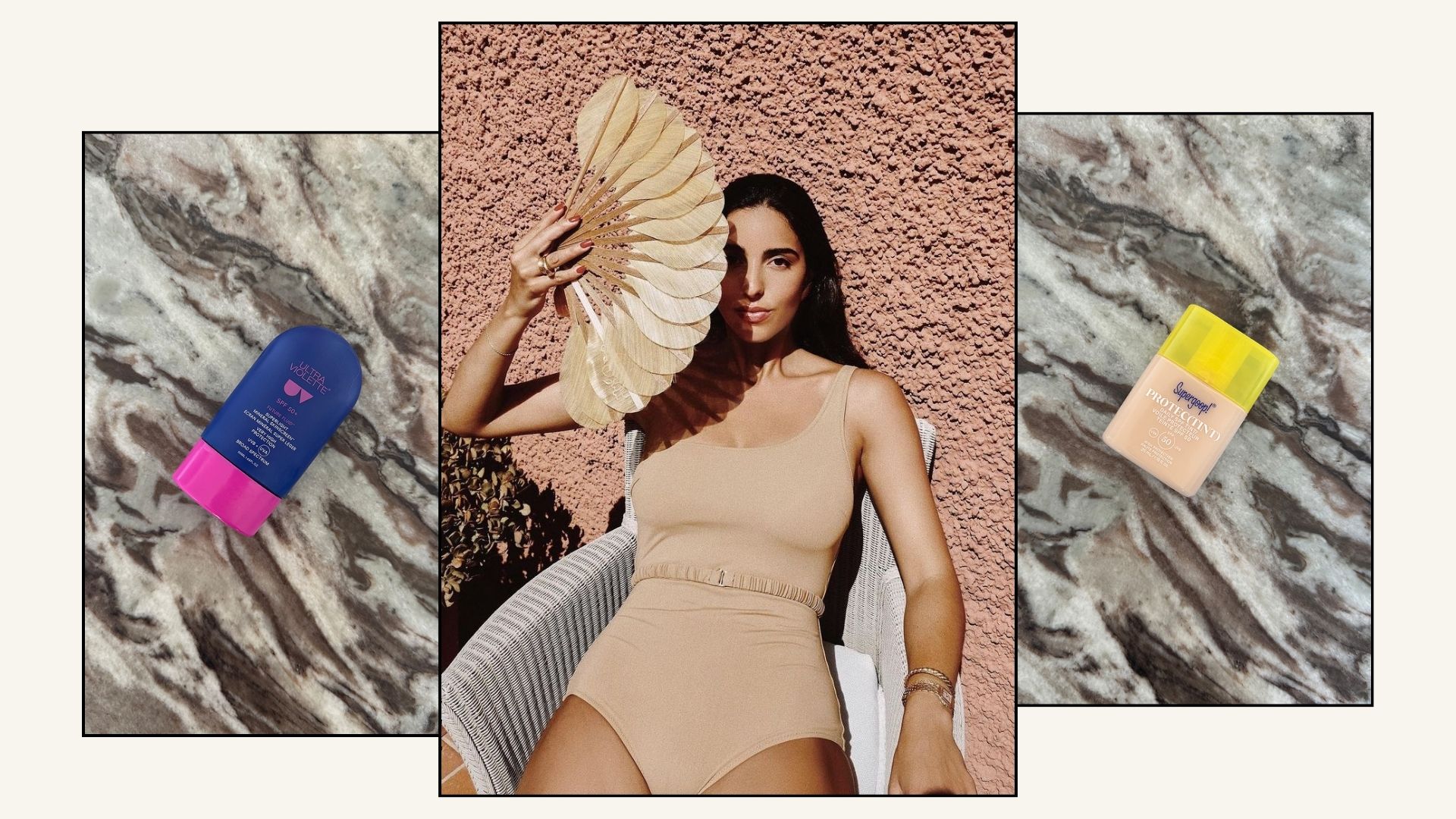
Hot weather has finally reached the UK, and while we're keen to solidify our summer wardrobe essentials and stockpile ice lollies for the freezer, we're also turning to SPF as the temperatures rise. While we need to wear SPF year-round to protect our skin from ageing (yes, really—it's estimated that UV rays account for around 80-90% of skin ageing), it's particularly important to protect your skin in the spring and summer months as the rays get stronger.
However, finding a great facial SPF can be tricky (perhaps more so than body sunscreens), and not all SPFs are created equal. In fact, there are two kinds of sunscreen that you need to know about: mineral sunscreens and chemical sunscreens. As someone with sensitive skin, I find some chemical SPFs irritate my sensitive eyes, but since converting to mineral SPF, I'm never looking back. So, what are mineral and chemical SPFs, and what is the difference between the two?
Difference Between Mineral Sunscreen Chemical Sunscreen

"Sun protection filters are classified into ‘chemical' or 'organic’ filters and ‘physical' mineral', or 'inorganic’ filters," says Dr Hiva Fassihi, consultant dermatologist for La Roche-Posay at OneWelbeck Skin Health
Allergy clinic.
Chemical sunscreens work by absorbing the sun's UV rays and converting the light to heat, which then dissipates from the skin. This chemical reaction is what gives chemical sunscreens their name. On the other hand, mineral sunscreens both physically block and reflect UV rays from the skin. They're sometimes referred to as physical sunscreens for this reason. "Mineral sunscreen ingredients, such as zinc oxide and titanium dioxide, were previously thought to reflect and scatter UVR and visible light, but more recently, data has demonstrated that mineral sunscreens absorb UVR and reflect visible light," says Dr Fassihi.
Who Are Mineral SPFs Best Suited To?
Chemical SPFs and mineral SPFs both come with their own list of pros and cons, so it comes down to your preferences and skin type.
Chemical SPFs can be problematic for sensitive skin or sting sensitive eyes. Additionally, for those who have melasma (a skin condition that results in stubborn skin pigmentation, which is often exacerbated by the sun and heat), chemical sunscreens can sometimes make this worse, as the conversion of the light into heat can trigger pigmentation. "Mineral filters are chemically inert and are often found in children’s sunscreen formulations. In those with sensitive skin or atopic eczema, mineral sunscreens are better tolerated," says Dr Fissihi.
Not only are mineral sunscreens typically better for sensitive skin, but the ingredients tend to be kinder to the environment, too. You'll often see many mineral SPFs labelled "reef-safe" for this reason. However, there are also some cons when it comes to mineral SPFs. Typically, mineral-based SPFs tend to have ingredients such as titanium dioxide or zinc oxide. However, these ingredients tend to give sunscreen a white cast, which is the main con of mineral SPFs, particularly so for darker skin tones.
"The problem with ingredients [in mineral SPFs] is that they leave a white residue on the skin and often feel greasy," says Dr Fissihi. Thankfully, mineral SPFs have come a long way and are becoming more cosmetically elegant as formulas develop. "More recently, ‘micronizing’ (making the particles smaller) of these mineral filters has made them less white on the skin and more cosmetically acceptable, however, this process results in mineral sunscreens becoming better at absorbing UVR, but they become much worse at reflecting visible light," says Dr Fissihi.
"It is well known that the ‘blue’ spectrum of visible light can contribute to increased skin pigmentation, especially in individuals with darker skin tones," she says. "This occurs because blue light stimulates melanocytes, the cells that produce melanin (the pigment responsible for skin colour), leading to hyperpigmentation. The effect is often more pronounced and long-lasting in darker skin types." So, if you're looking for a good mineral SPF, Dr Fissishi recommends looking for formulas with iron oxide (which provides a 'tint' to the SPF) to enhance protection against visible light. However, she recommends looking for SPFs that combine both mineral and chemical filters for the best protection. Some of her favourite SPF recommendations include La Roche-Posay UVMune Anthelios Ultra-Light Invisible Fluid SPF50+ (£20), which is a chemical SPF, as well as Jan Marini Physical Protectant Tinted SPF 45 (£58).
Therefore, it's a good idea to try mineral sunscreens before you buy them if you can. Thankfully, formulations have come a long way, and there are now more sophisticated mineral sunscreen formulas that are sheerer and work with all skin tones. Ahead, we've rounded up some of the best mineral sunscreens, tried and tested by us.
The Best Mineral SPFs, Tried Tested
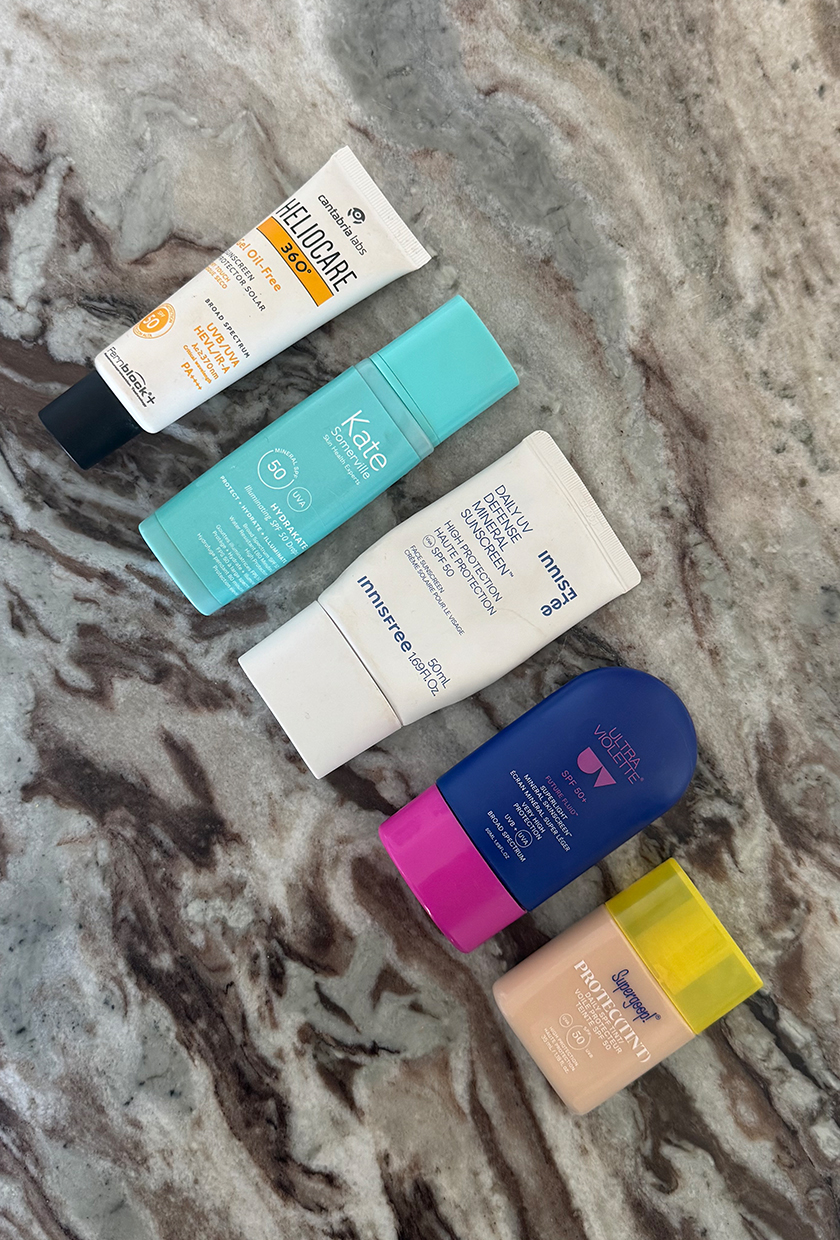
- Kate Somerville Illuminating SPF 50+ Drops (£39)
- Innisfree Daily UV Defense Mineral SPF (£21)
- Supergoop! Protec(tint) SPF 50 Daily Skin Tint (£40)
- Tatcha The Silk Sunscreen SPF 50 (£65)
- Heliocare 360° Oil-Free Gel Sunscreen Protector Original SPF 50 (£31)
- Ultra Violette Future Fluid SPF 50+ Superlight Mineral Skinscreen (£38)
- No7 Future Renew UV Defence Shield SPF 50 (£25)
- Beauty Pie Traceless Mineral Broad Spectrum SPF 30 Sunscreen + Primer (£30)
- Murad City Skin Age Defence Broad Spectrum SPF 50 Pa++++ (£69)
- Beauty of Joseon Daily Tinted Fluid Sunscreen Broad Spectrum SPF 30 Pa+++ (£17)
- The Inkey List Polyglutamic Acid Dewy Sunscreen SPF 30 (£12)
1. Kate Somerville Illuminating SPF 50+ Drops
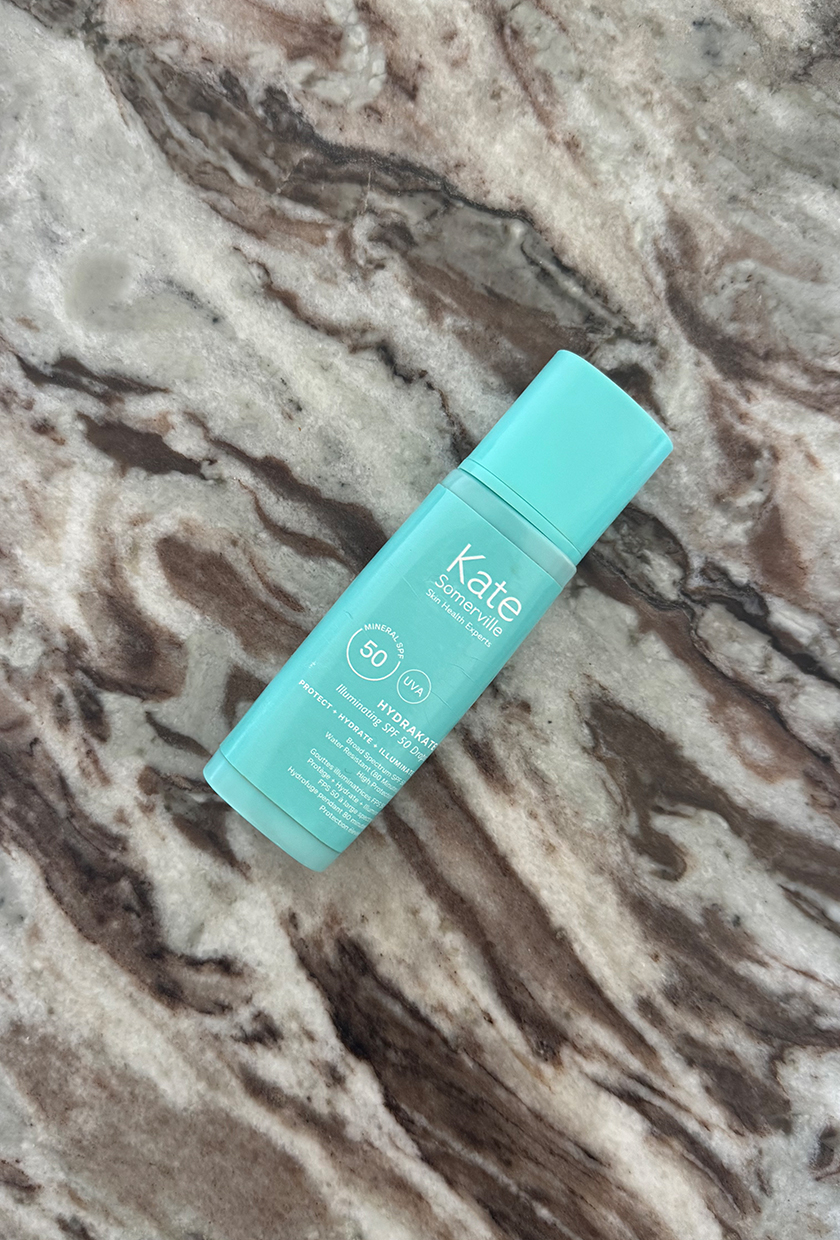
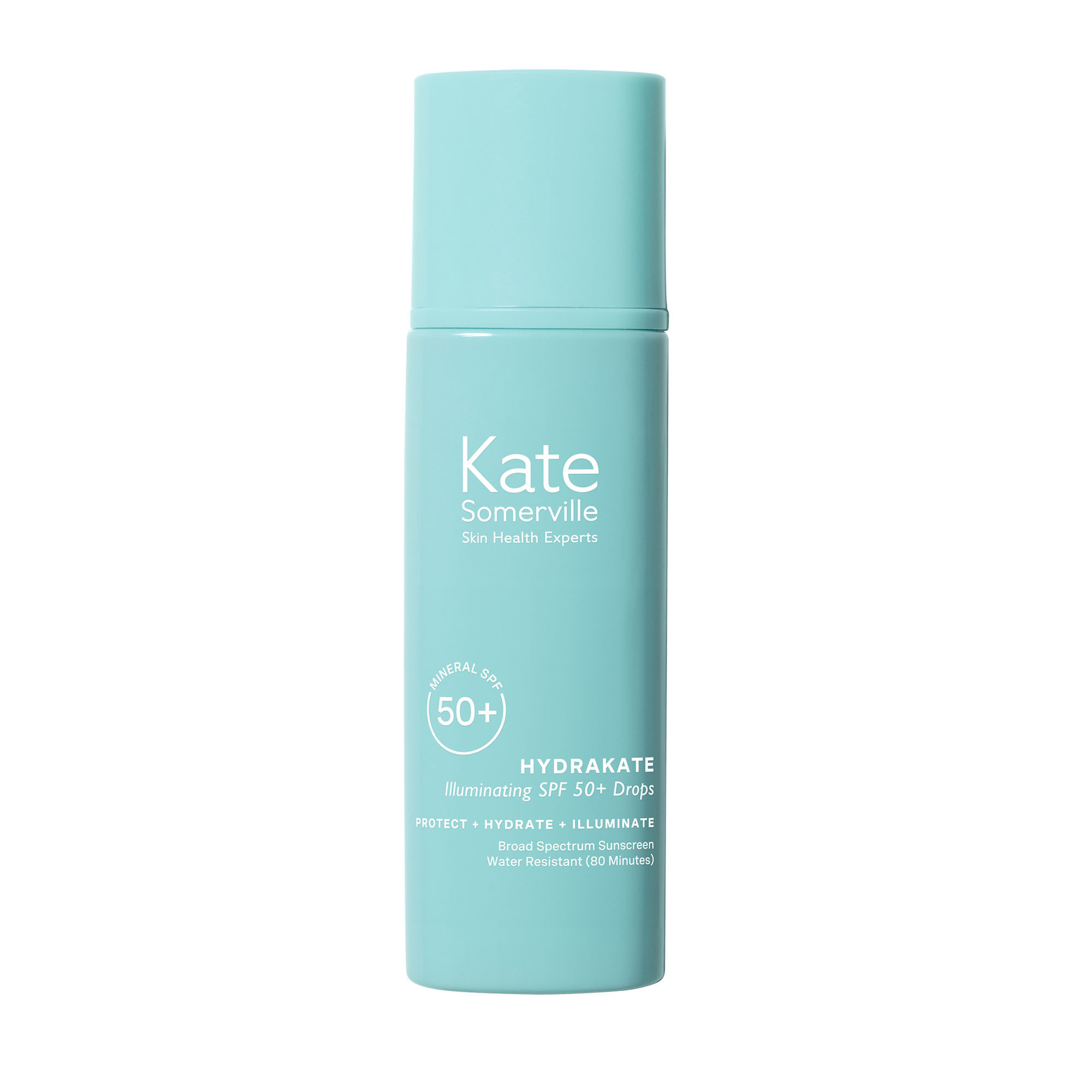
The silky, featherlight texture of Kate Someville's newest SPF melts into skin, leaving a lit-from-within sheen. It layers beautifully under makeup, acting almost like a pearlescent primer as it shields your skin. Alongside the SPF 50+ protection, it contains ectoin to help soothe and moisturise the skin, plus it remains dewy and radiant from the initial application right through the day, so it's great for those with dry skin who favour a dewy glow. It doesn't leave a white cast, but has a subtle blurring quality to it that perfects your skin.
Pros
- Dewy, radiant finish
- Doesn't leave a white cast
- Hydrating
Cons
- May be too greasy for oily complexions
2. Innisfree Daily UV Defense Mineral Sunscreen SPF 50
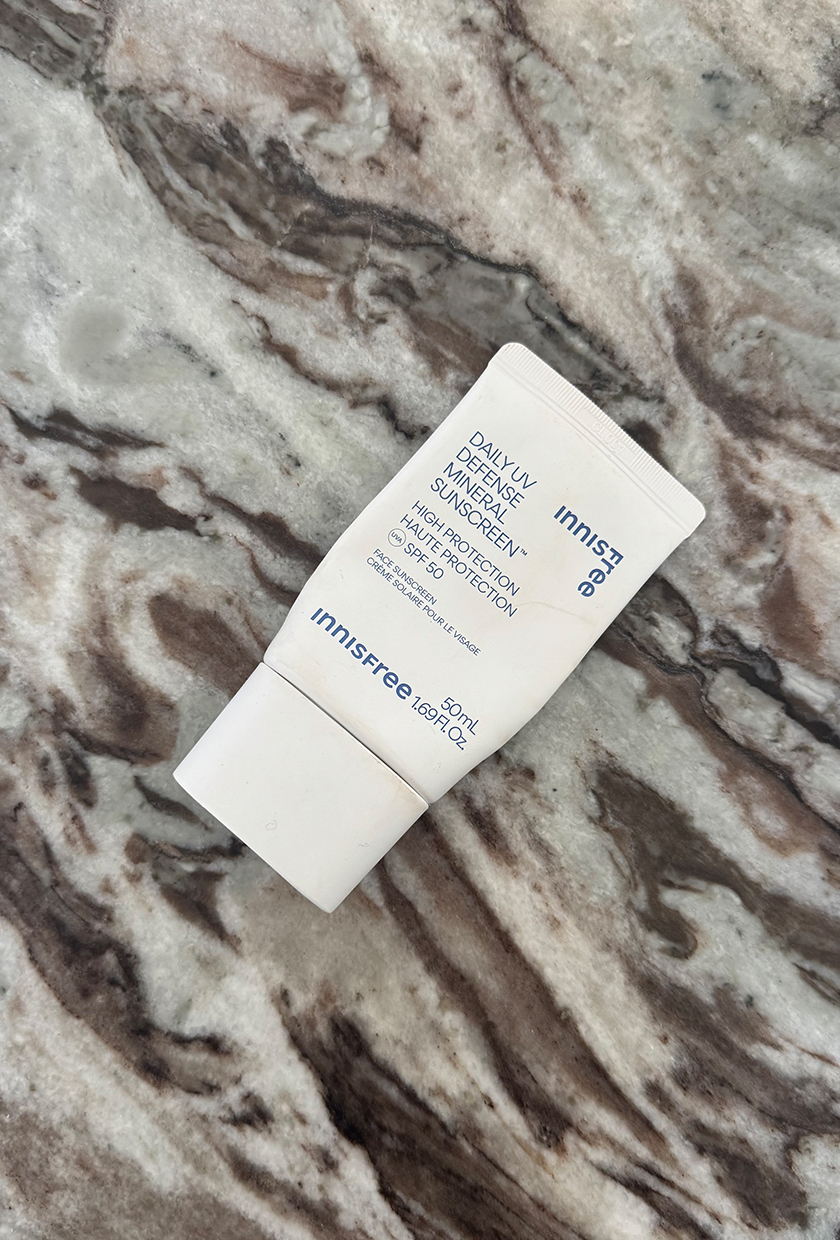
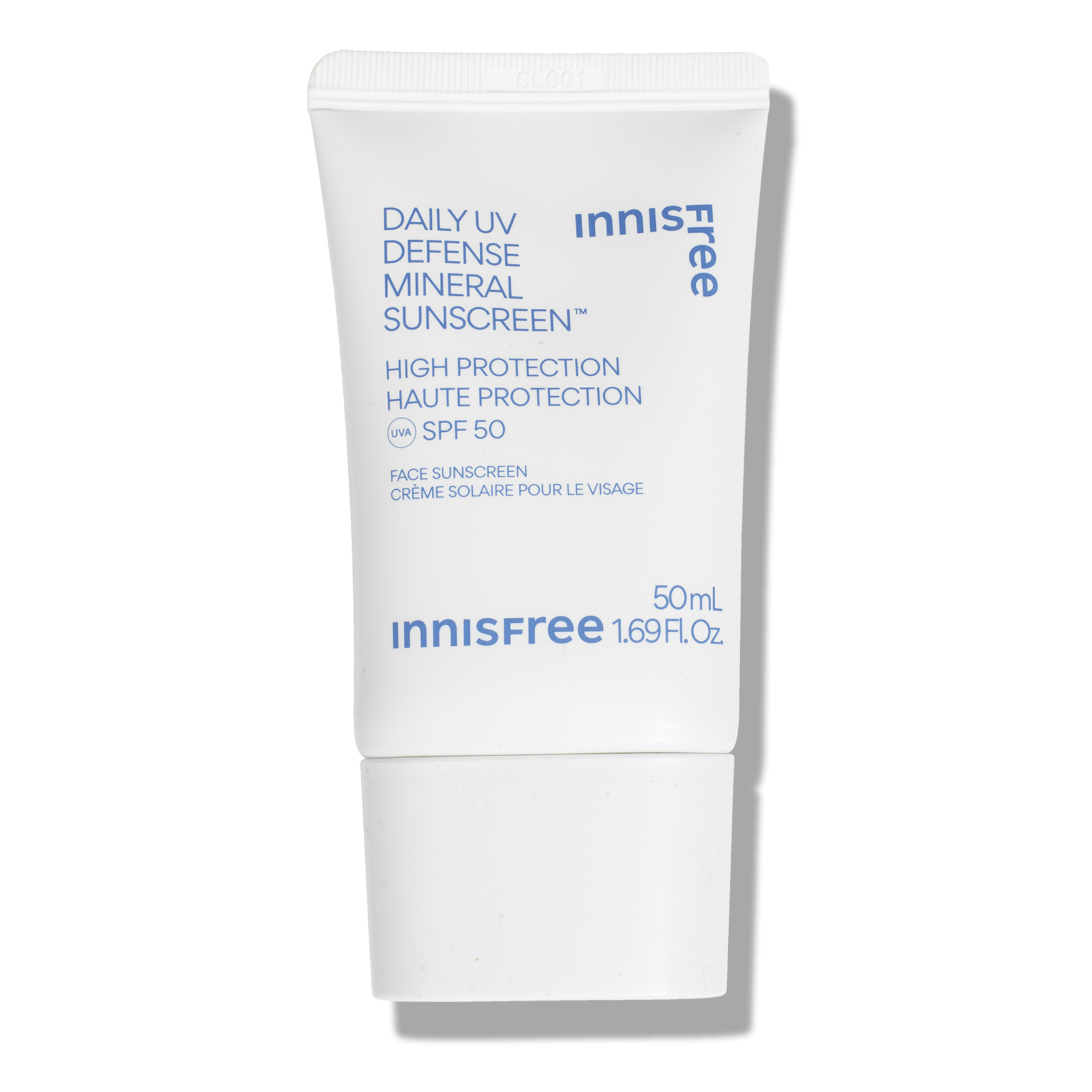
I've been recommending this SPF to everyone—it's criminally underrated. Innisfree’s mineral SPF 50 is a no-fuss, high-performance formula that feels anything but heavy. The finish is demi-matte—ideal for oily or combo skin types—and it wears like a dream beneath base products. Thanks to the eight different types of hyaluronic acid and centella asiatica, it's very hydrating (but never greasy) and soothes the skin as you wear it. It's a very reasonable price point, too. I've spoken to friends with deeper complexions who tell me this leaves zero white cast, too.
Pros
- Hydrating
- Demi-matte finish is ideal for combination or oily skin types
- No white cast
Cons
- Has a thicker consistency, so takes a couple of minutes to sink in
3. Supergoop! Protec(tint) SPF 50 Daily Skin Tint
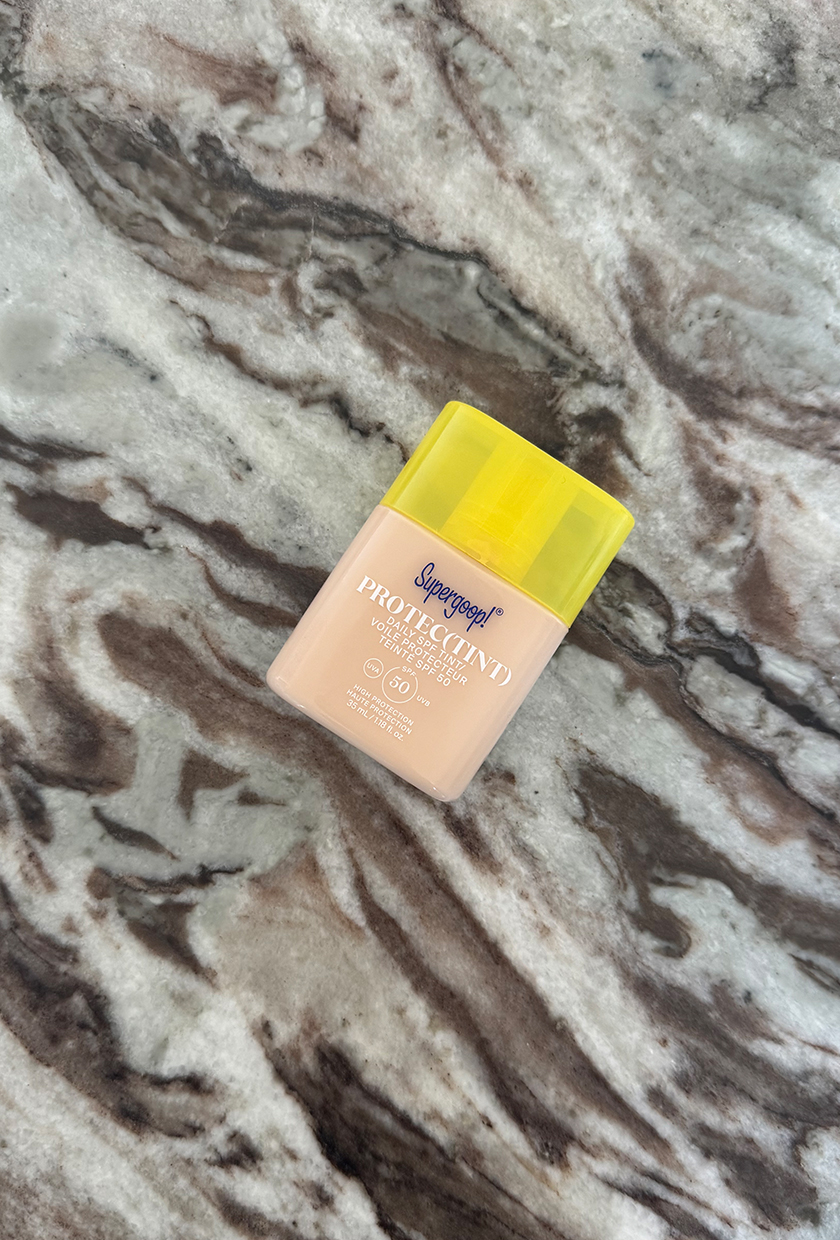
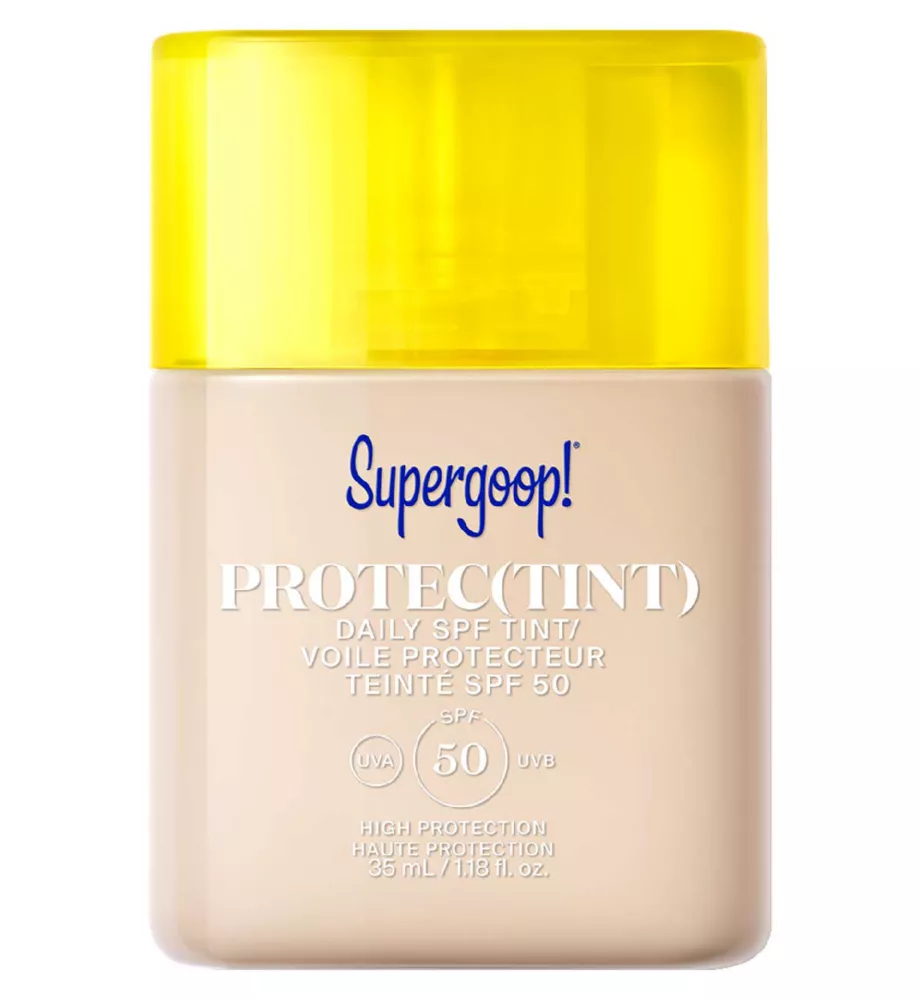
I love just about every SPF that Supergoop! comes out with, and the new Protec(tint) is no exception. This SPF-skincare-makeup hybrid offers buildable coverage thanks to the tinted formula, which comes in 14 inclusive shades—one of the broadest spectrums I've seen when it comes to tinted SPFs. It blends like a lightweight, sheer foundation but contains 100% mineral actives, making it sensitive skin-friendly. It gives your skin a hydrated, dewy look—like you’ve slept ten hours and drank three litres of water.
Pros
- 14 shades
- Dewy finish
- Offers natural coverage with SPF 50 protection
Cons
- May be too dewy if you prefer a matte finish
4. Tatcha The Silk Sunscreen SPF 50
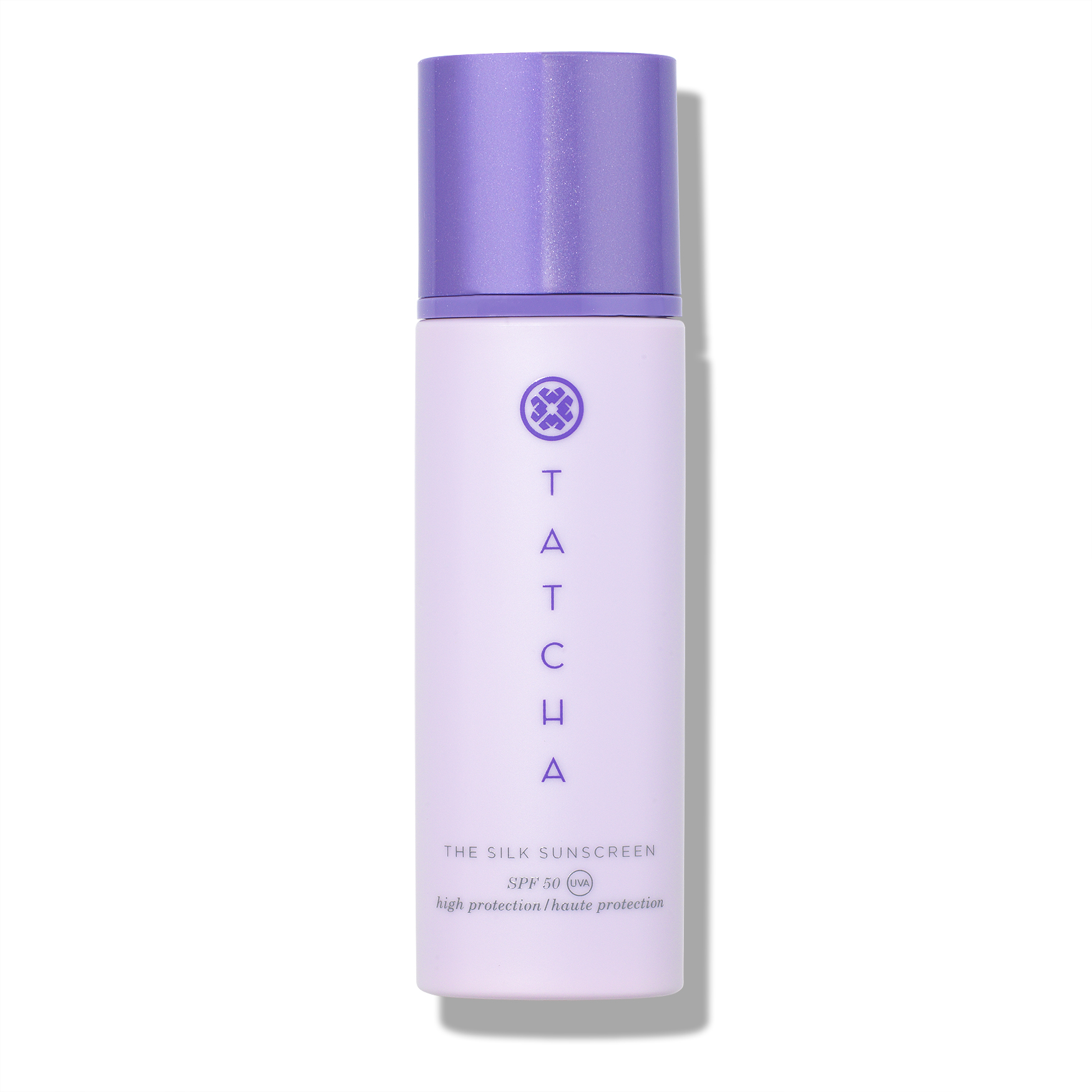
Tatcha’s The Silk Sunscreen is luxury in a bottle. True to its name, this SPF glides onto the skin with a texture so sumptuous, it feels like silk. With a weightless finish and a natural satiny glow, it sits beautifully on bare skin or beneath makeup as well. Infused with silk protein, it hydrates while it protects, making it particularly ideal for dry or mature skin types craving both hydration and efficacy. It's truly transparent, too, so there is no risk of a white cast with this SPF. It's expensive, but worth the money.
Pros
- Luxurious texture
- Hydrating
- Great for dry and mature skin types
Cons
- Luxurious formula comes with an expensive price tag to match
- May be too heavy for oily skin types
5. Heliocare 360° Oil-Free Gel Sunscreen Protector Original SPF 50
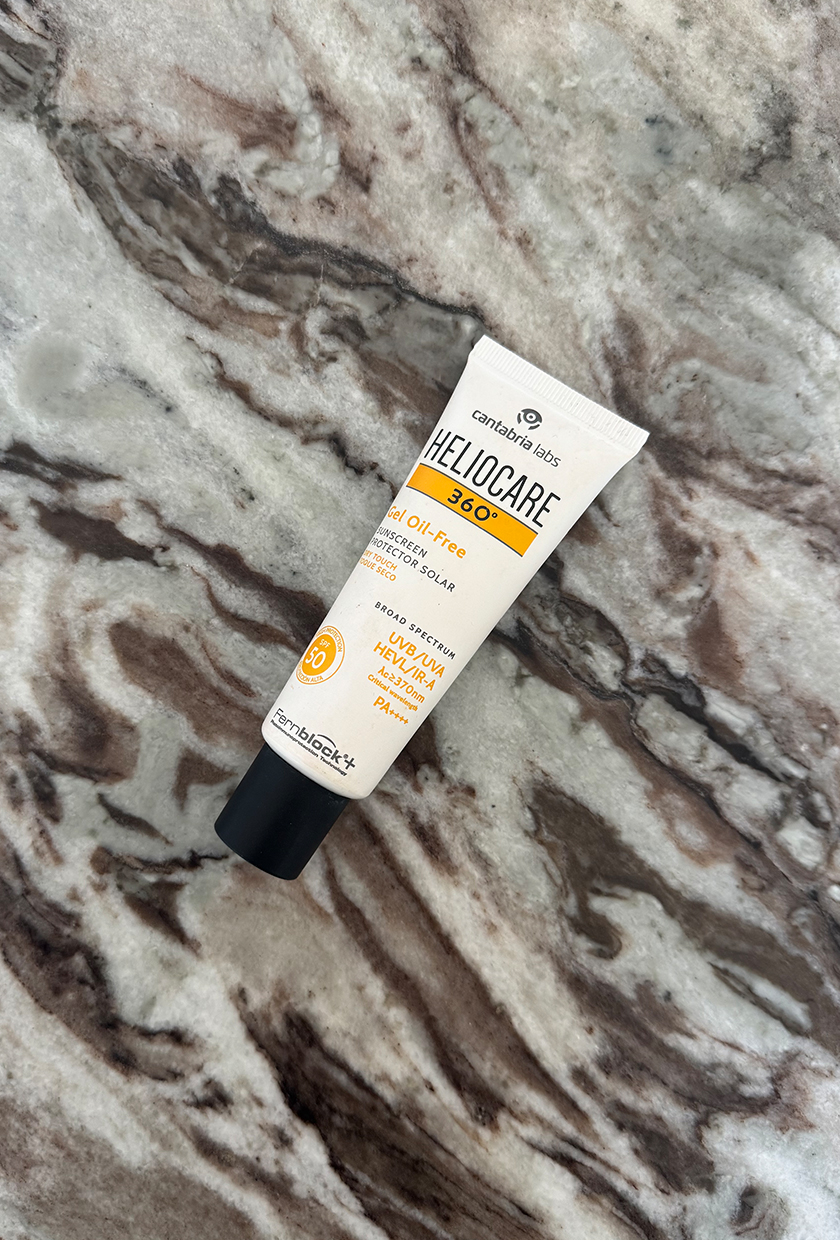
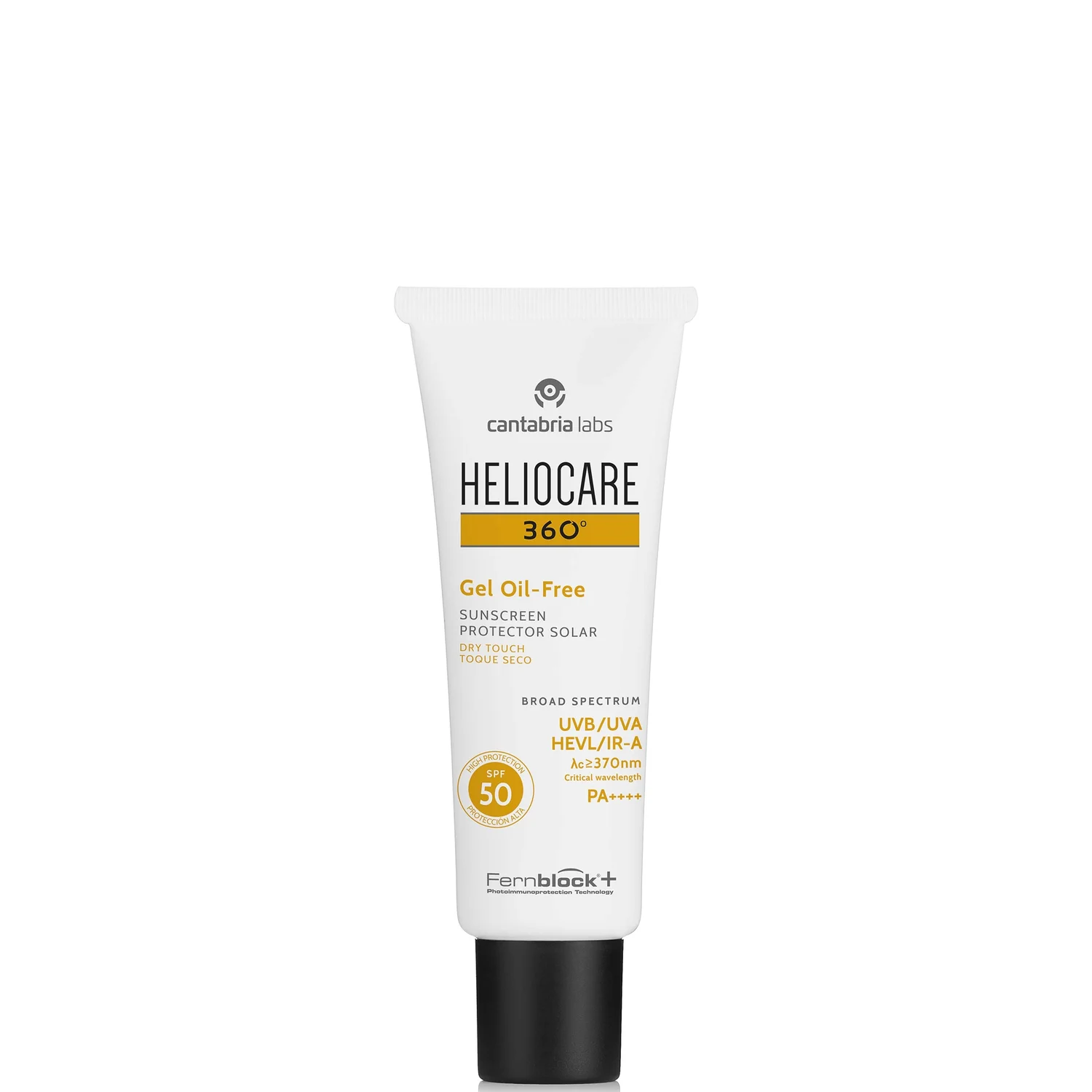
Ask any derm or skincare expert about their favourite SPF brands, and they’ll most definitely point to Heliocare. This oil-free gel version is worthy of the hype for a reason. It delivers broad-spectrum protection with zero white cast and a beautifully matte finish. It's oil-free, so it's ideal for acne-prone skin, helping to regulate sebum while shielding from UVA and UVB rays. The gel formula is what truly sets it apart from others, as it dries onto the skin to a matte finish that is dry to the touch, without a hint of sticky residue.
Pros
- Oil-free formula is great for breakout-prone skin
- Mattifying finish is good for oily or combination skin types
Cons
- May not be hydrating enough for those with. dry or mature skin
6. Ultra Violette Future Fluid SPF50+ Superlight Mineral Skinscreen
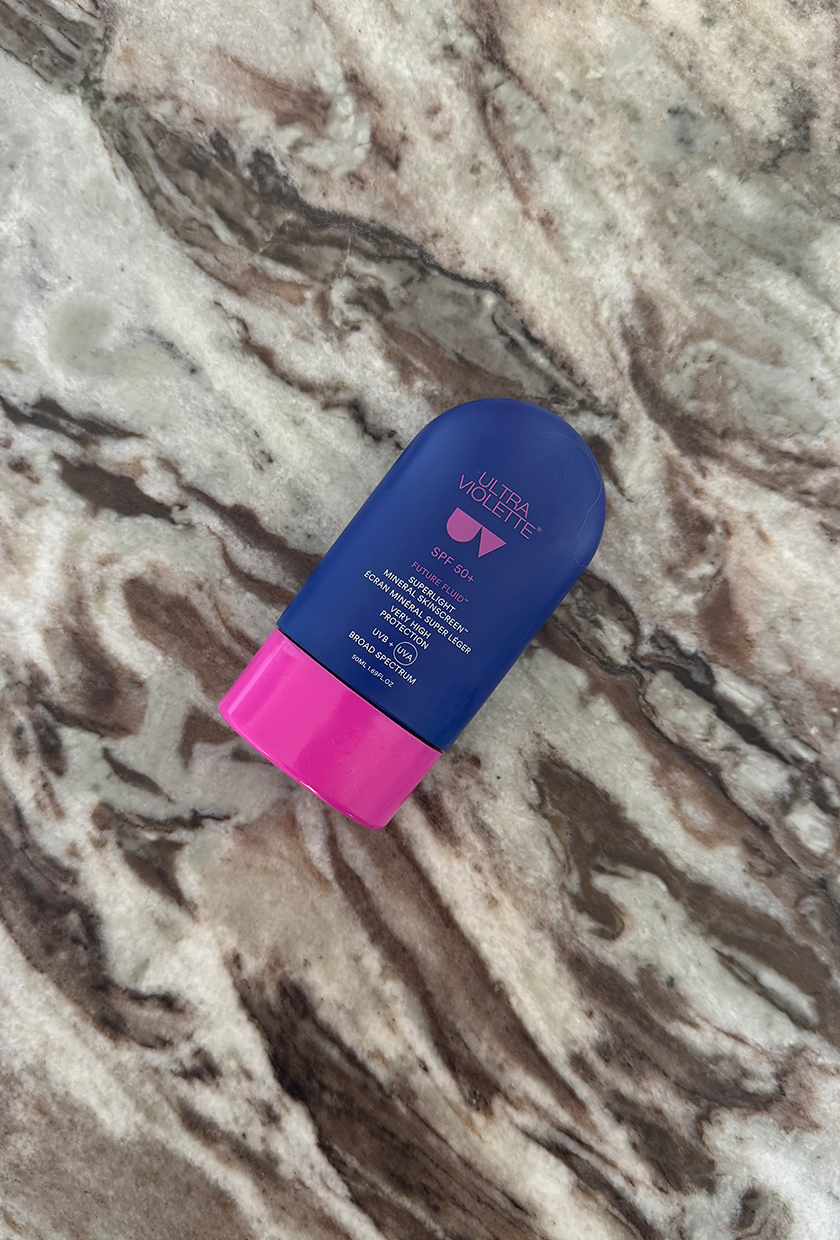
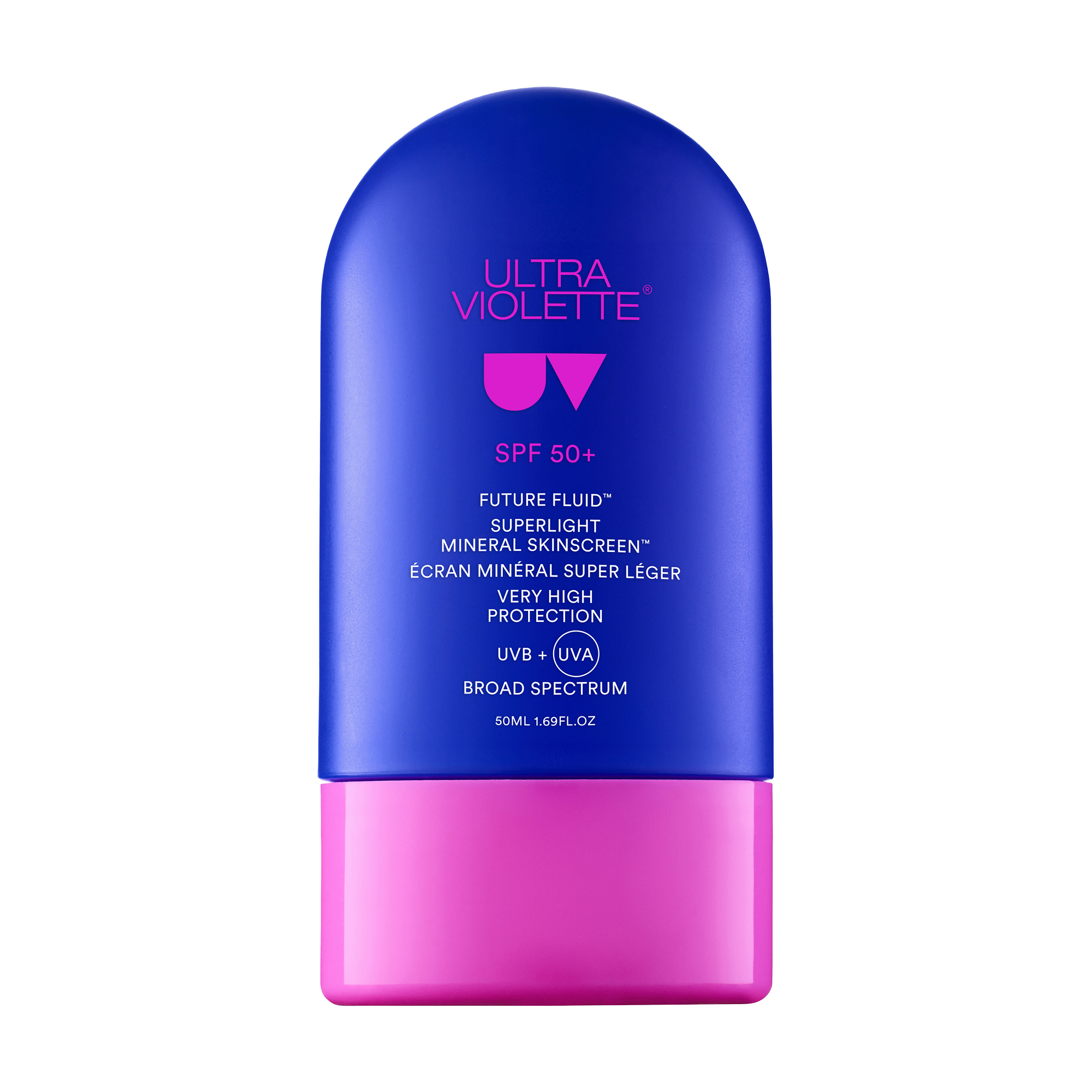
Wholesale Replica Bag launch from Ultra Violette is a mineral formula, and it's a really good one. It has a subtle tint that doesn't leave a white cast, but leaves skin looking a little more uniform while remaining virtually weightless on the skin. It dries down into a smooth matte finish and is simultaneously hydrating. It's also fragrance-free, so it's ideal for sensitive skin types. If you have oily or combination skin and don't want anything that feels so greasy or sticky, then this is a safe bet to try next.
Pros
- Blurring, mattifying finish
- Hydrating
- Fragrance-free, ideal for sensitive skin types
Cons
- Not the best for mature or dry skin types
7. No7 Future Renew UV Defence Shield SPF 50
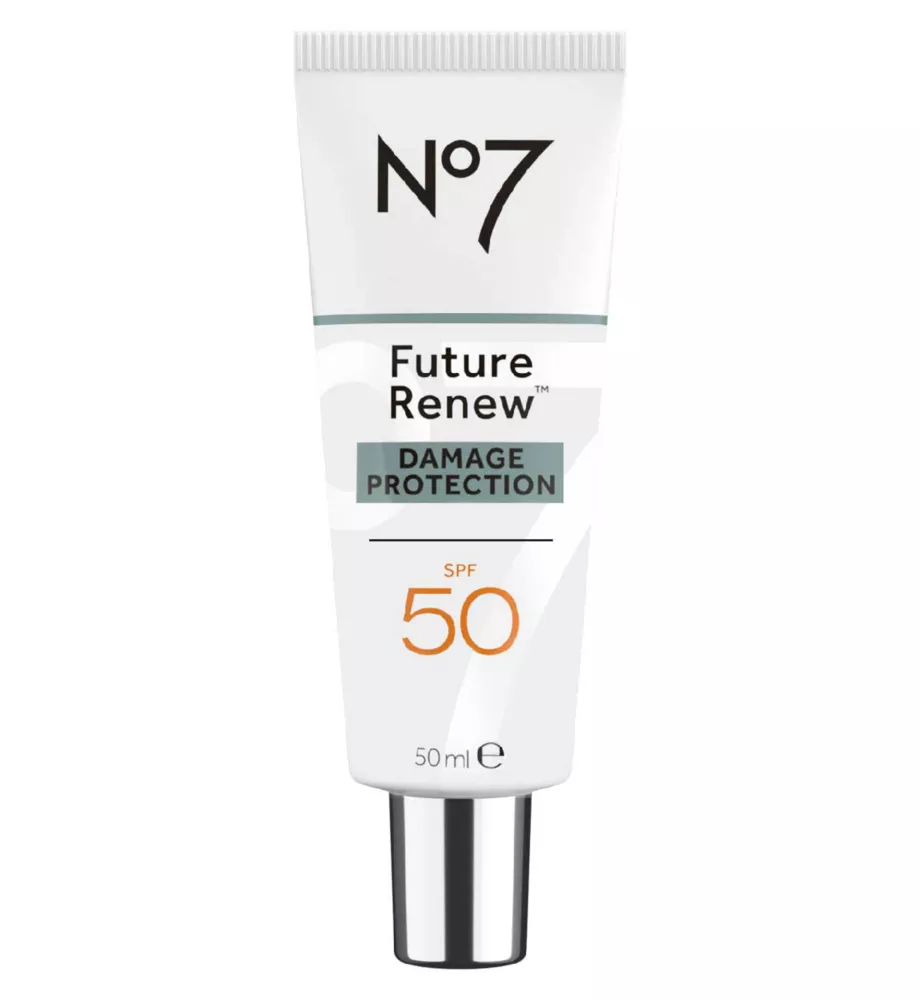
Lightweight and hydrating, this lightweight SPF uses a mineral filter blend that plays well with all skin types. There are no frills with this texture, but it's the kind of daily SPF you can trust to do the heavy lifting under your makeup or on no-makeup days. It absorbs into the skin quickly without leaving a trace, but simultaneously offers just enough hydration to suit all skin types—it's a favourite of our beauty team.
Pros
- Lightweight and sinks in quickly
- Wears well underneath makeup
Cons
- Not the most luxurious packaging
8. Beauty Pie Traceless Mineral Broad Spectrum SPF 30 Sunscreen + Primer
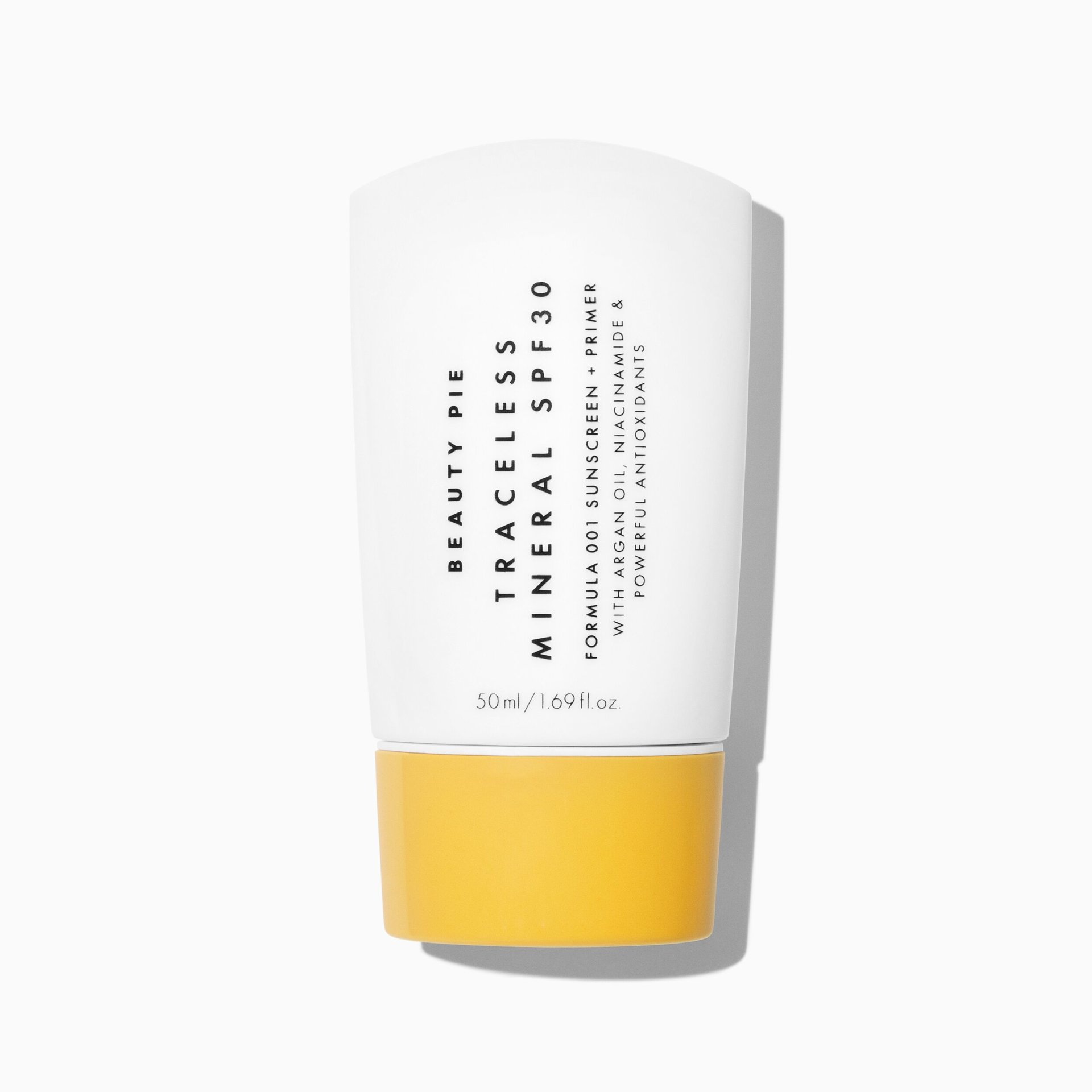
Price shown is members' price.
I've long been a fan of Beauty Pie’s SPFs, but this mineral sunscreen-meets-primer hybrid smooths, blurs, and preps your canvas while offering reliable sun defence—pretty impressive. It has a moisturising texture that won't clog your pores or pill underneath makeup, yet it offers just the right amount of hydration to keep your skin looking radiant. It also contains niacinamide to brighten the skin a blur pores, while Indian beech seed extract helps shield skin from environmental stress.
Pros
- Doubles as an SPF and primer
- Sits well underneath makeup
Cons
- You need a membership to access member prices
9. Murad City Skin Age Defence Broad Spectrum SPF 50 Pa++++
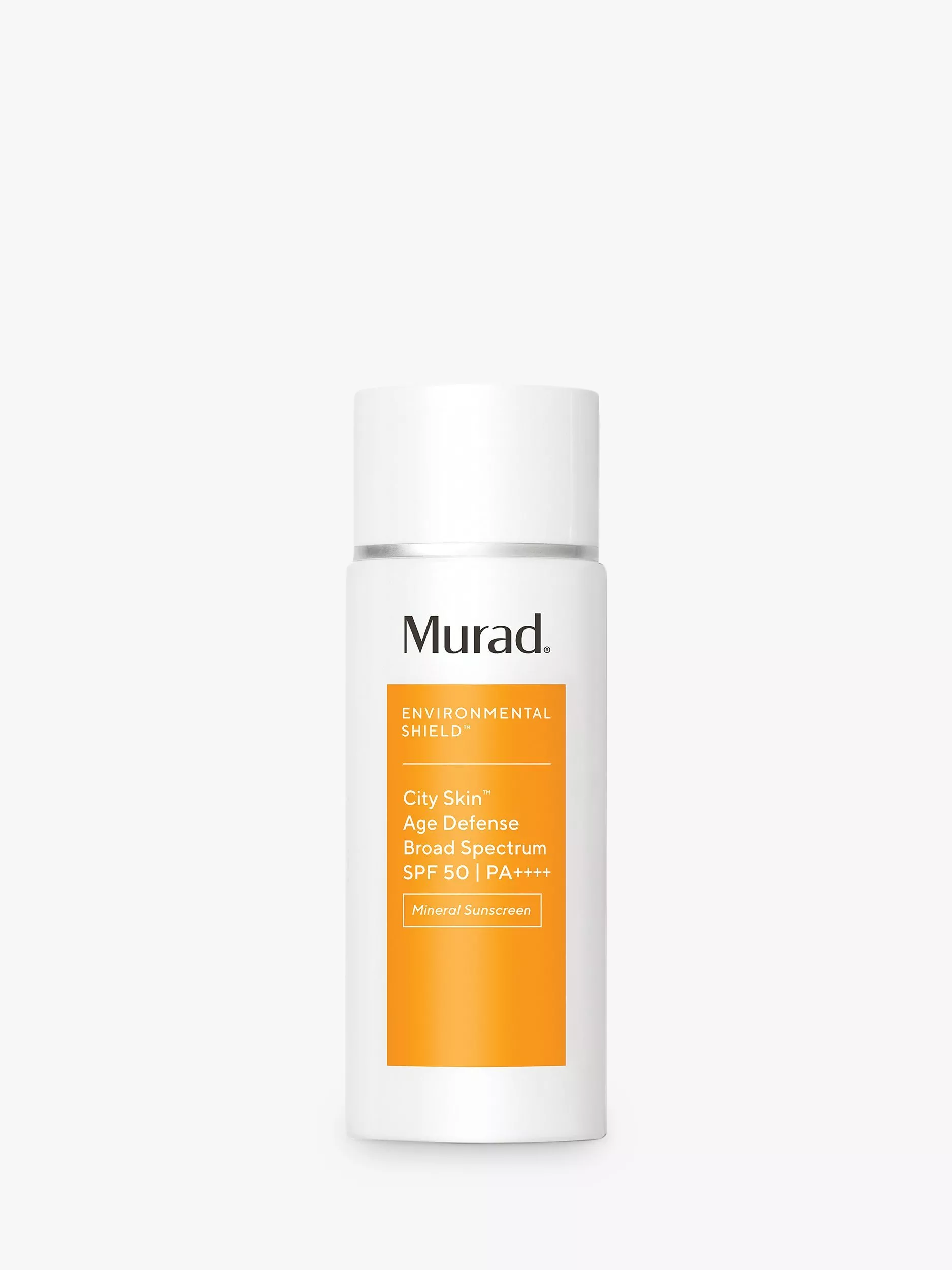
City dwellers, this one’s for you. Murad’s City Skin SPF 50 is formulated with pollution-fighting power and blue light protection. It has a silky, hydrating texture that leaves the skin looking plumped, while he peachy tint helps neutralise dullness and evens out tone instantly—no ghostly cast in sight here. It’s ideal for anyone juggling long commutes, screen time, and city smog. It feels weightless and acts like skincare first, SPF second—which is exactly how I like it. My only qualm is the price tag, but it's worth the investment if you're picky about SPFs.
Pros
- Shields against pollution
- Silky texture
Cons
- Expensive price tag
10. Beauty of Joseon Daily Tinted Fluid Sunscreen Broad Spectrum SPF 30 Pa +++
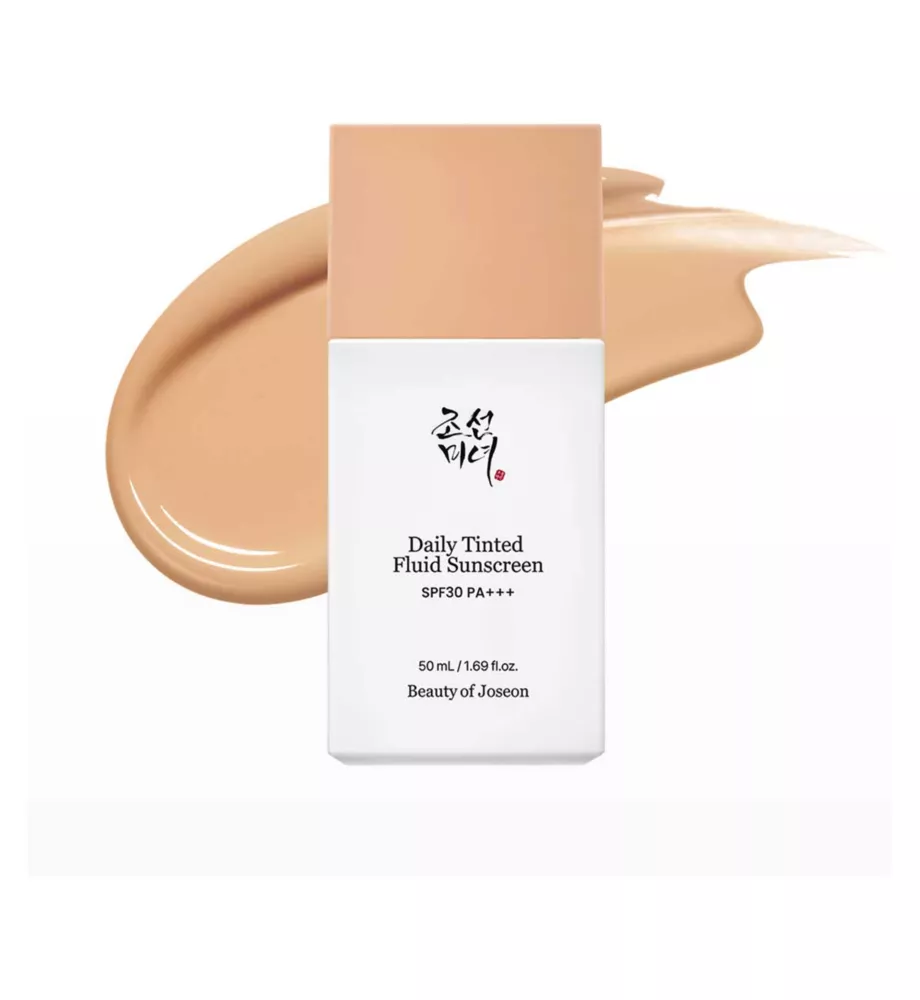
True to its K-beauty roots, this SPF is all about skin-first. Beauty of Joseon’s Daily Tinted Fluid offers sheer, skin-enhancing coverage with added sun protection, all in a breathable, milky texture. The finish is softly radiant, neither too dewy nor too matte. In fact, it actually helps to control sebum production to keep your skin looking balanced throughout the day. It's perfect for those days when you don't want to wear foundation, but still want a hint of coverage.
Pros
- Delivers a sheer tint
- 12 shades
- Helps control shine
Cons
- Can be hard to find in stores
11. The Inkey List Polyglutamic Acid Dewy Sunscreen SPF 30
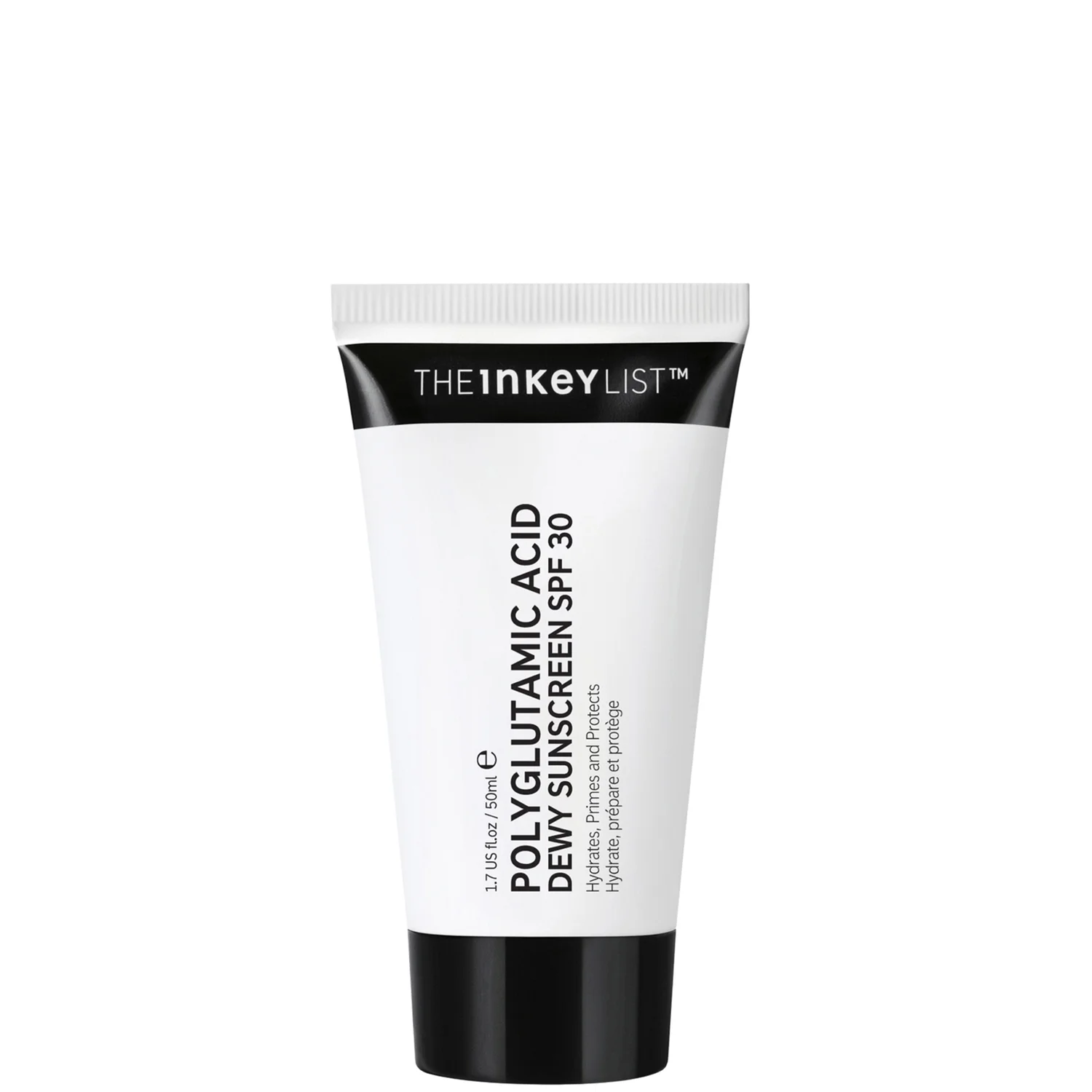
The Inkey List is every beauty insider's go-to for affordable yet effective skincare, and this SPF comes with glowing reviews. The dewy formula absorbs quickly and leaves skin looking plumped and hydrated. The polyglutamic formula makes this a hydrating choice for all skin types without feeling heavy or sticky—it makes a great primer for makeup.
Pros
- More affordable than other SPFs
- Hydrating ingredients
- No white cast
- Dewy finish
Cons
- Packaging isn't as luxurious as others on this list
12. Summer Fridays Shadedrops Broad Spectrum SPF 30 Mineral Milk Sunscreen
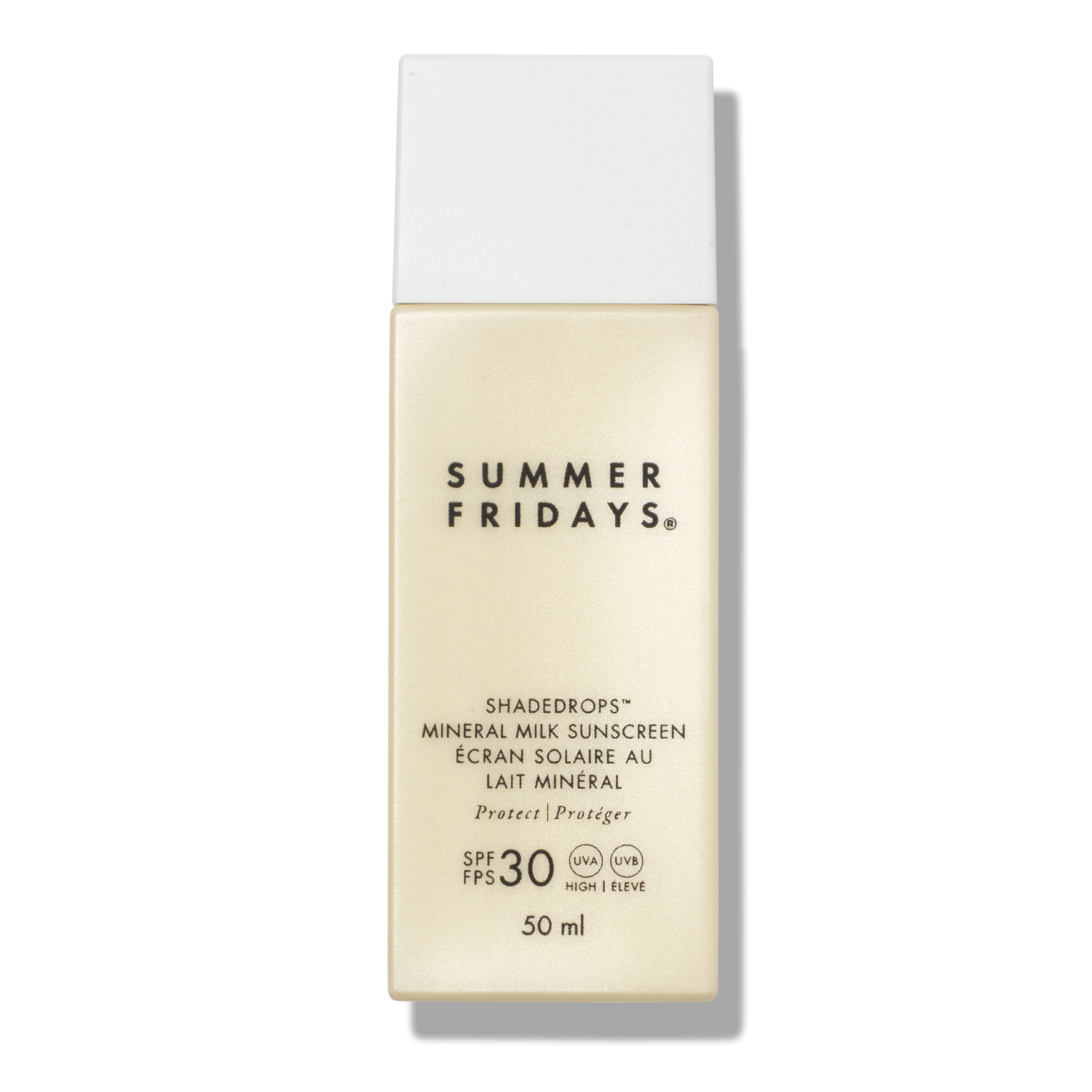
"I love this SPF from Summer Fridays so much," says Who What Wear UK junior beauty editor, Grace Lindsay. "It sinks into the skin in seconds (it really does have a gorgeous milky texture) and feels so lightweight under makeup. Plus, it adds a natural glow to the complexion. Enriched with vitamins and antioxidants, it works to protect and defend the skin and shields it from UVA and UVB rays. The only downside for me is that I would prefer an SPF 50 formula, but apart from that, I couldn't recommend it enough."
Pros
- Lightweight, milky texture
- Sinks in quickly
- Works well underneath makeup
Cons
- We'd love to see an SPF 50 version

Eleanor Vousden is the beauty editor for Who What Wear UK. She was previously deputy editor at Hairdressers Journal, health writer at Woman
Home and junior beauty editor at Powder. She has also contributed to Wallpaper and Elle Collections.
With a degree in fashion journalism from the London College of Fashion, she has 10 years of industry experience and has been highly commended at the BSME Talent Awards for her work on Powder and also contributed to the title winning Website of the Year at the PPA Awards.
Eleanor’s journalistic focus is providing readers with honest and helpful beauty content. She has interviewed celebrity makeup artists, hairstylists and dermatologists throughout her career, as well as celebrities such as Hailey Bieber, Sarah Jessica Parker and Scarlett Johansson.